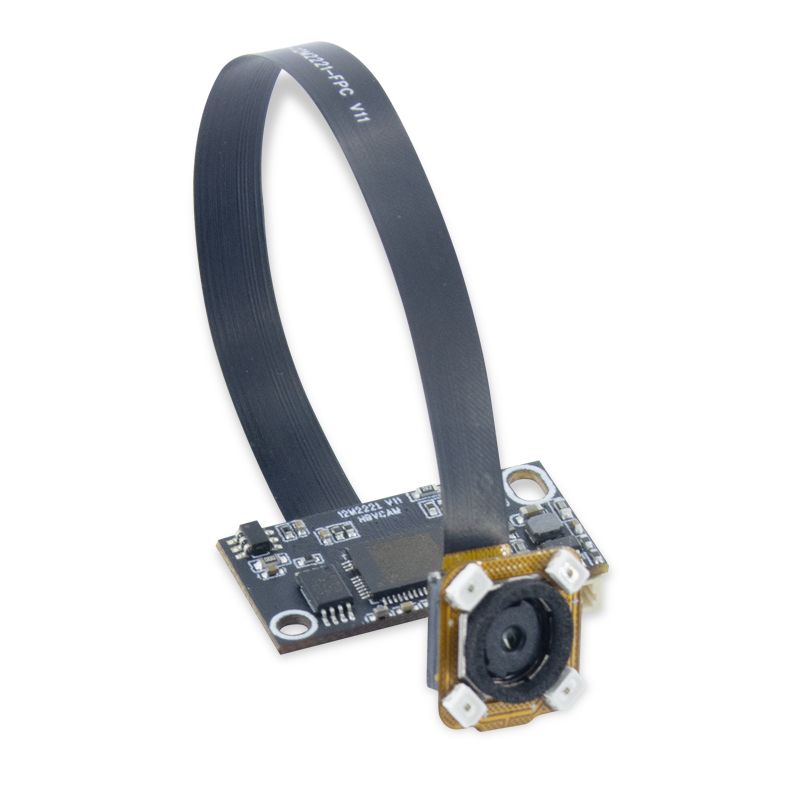Key Considerations When Buying a 12MP Camera Module
Choosing the right camera module is essential for achieving high-quality imaging in various applications, including smartphones, drones, security cameras, and industrial devices. When shopping for a 12-megapixel (MP) camera module, several factors should be considered to ensure optimal performance and compatibility with your specific needs. Let's explore some key considerations to keep in mind when purchasing a 12MP camera module:
1. Image Sensor Type:The image sensor is the heart of the camera module, capturing light and converting it into digital image data. When selecting a 12MP camera module, consider the type of image sensor it uses, such as CMOS (Complementary Metal-Oxide-Semiconductor) or CCD (Charge-Coupled Device). CMOS sensors are more commonly used in modern camera modules due to their lower power consumption, faster readout speeds, and better integration with digital processing functions.
2. Sensor Size and Pixel Size:Sensor size and pixel size play a crucial role in determining image quality, especially in low-light conditions. Larger sensors and pixels generally result in better image quality, higher sensitivity, and reduced noise levels. When evaluating 12MP camera modules, consider the sensor size (e.g., 1/2.3", 1/2.5") and pixel size (e.g., micrometers) to ensure adequate light sensitivity and image resolution for your intended application.
3. Lens Quality and Aperture:The lens quality and aperture significantly impact image sharpness, clarity, and depth of field. Look for camera modules with high-quality lenses made from materials such as glass or sapphire, as well as wide apertures (e.g., f/1.8, f/2.0) to maximize light transmission and improve low-light performance. Additionally, consider features such as autofocus, optical image stabilization (OIS), and anti-reflective coatings for enhanced imaging capabilities.
4. Frame Rate and Video Resolution:If your application requires capturing video or fast-moving subjects, pay attention to the camera module's frame rate and video resolution capabilities. While 12MP resolution is sufficient for most still imaging applications, ensure that the camera module can also capture smooth, high-resolution video at the desired frame rates (e.g., 30fps, 60fps) and resolutions (e.g., 4K, 1080p).
5. Interface and Compatibility:Consider the interface options and compatibility of the camera module with your device or system. Common interface standards for camera modules include MIPI CSI-2 (Mobile Industry Processor Interface Camera Serial Interface 2) and USB (Universal Serial Bus). Ensure that the camera module is compatible with your device's operating system, software drivers, and hardware interfaces for seamless integration and optimal performance.
Recommended article:What is a lithium battery module?
6. Power Consumption and Heat Dissipation:Evaluate the power consumption and heat dissipation characteristics of the camera module, especially for battery-powered or compact devices. Choose a camera module that strikes a balance between performance and energy efficiency to maximize battery life and minimize heat generation, ensuring reliable operation in various environments.
7. Software Support and Development Tools:Lastly, consider the availability of software support, development tools, and documentation for the camera module. Look for vendors or manufacturers that offer comprehensive software development kits (SDKs), application programming interfaces (APIs), and technical support to facilitate integration, customization, and troubleshooting of the camera module within your application ecosystem.
In conclusion, purchasing a 12MP camera module requires careful consideration of factors such as image sensor type, sensor size, lens quality, frame rate, interface compatibility, power consumption, and software support. By understanding these key considerations and evaluating them in relation to your specific application requirements, you can select the right camera module to achieve optimal imaging performance and functionality for your project or product.
- Previous: What is a lithium battery module?
- Next: None
- 0




